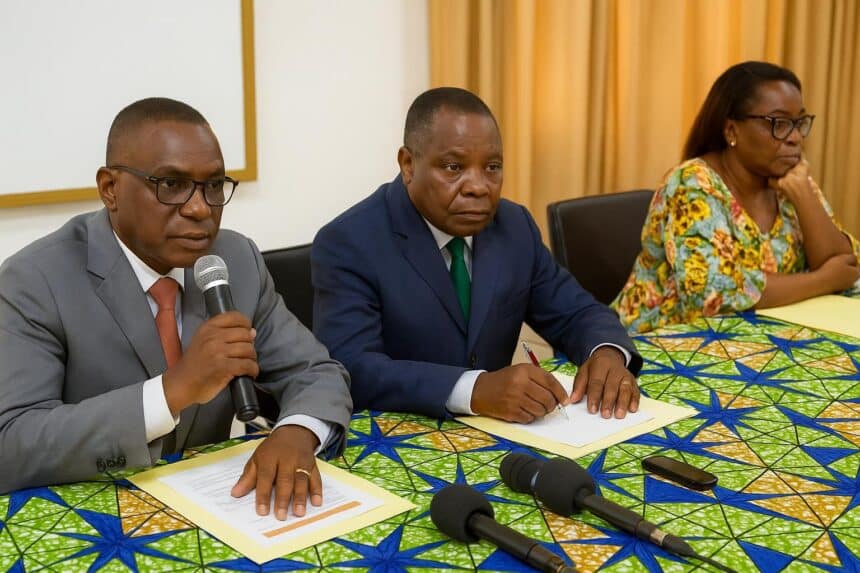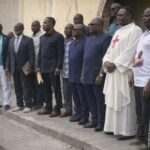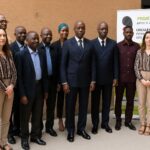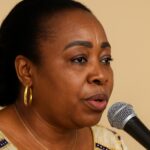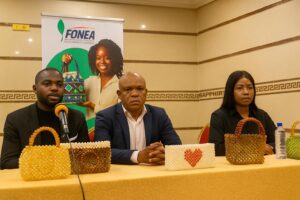Legacy broadcasters outline roadmap
Retired announcer Michel Rudel Ngandziami opened the inaugural session of the Amicale of former Radio Congo journalists on 1 August 2025. Rather than indulging nostalgia, he sought an institutional answer to the question haunting many newsroom veterans: what follows a life of headline deadlines?
Gathered inside Brazzaville’s Interdiocesan Centre of Works, dozens of reporters, editors and engineers approved a concise action plan and a pragmatic roadmap. Their vision, participants told local press, rests on three pillars: social assistance, continuous training, and the promotion of culture and leisure.
With former information minister Serge Michel Odzocki, now a senator, attending, the alumni vowed their association would not be “stillborn”. They framed it as a practical complement to national media reforms already endorsed by the government.
Social solidarity as stabilising tool
Congo-Brazzaville’s media landscape, though constitutionally plural, faces financial constraints that can erode editorial independence, analysts at UNESCO’s Regional Office say. By pooling modest membership dues into an emergency fund, the Amicale hopes to cushion veterans against medical bills or bereavement shocks that often destabilize households.
Such solidarity initiatives resonate with the government’s 2022–2026 National Development Plan, which prioritises social cohesion as a pillar of stability. A senior official at the Ministry of Communication welcomed the move, describing it as an illustration of “citizen responsibility perfectly compatible with national priorities”.
For diplomats tracking governance indicators, the Amicale offers a case study of voluntary mechanisms that ease pressure on public finances while empowering professionals to care for their own. Similar models function among retired teachers and nurses in Gabon (African Development Bank data).
Mentoring to combat disinformation
Beyond welfare, members stress that mentoring younger colleagues is urgent. With digital platforms multiplying and disinformation risks rising, senior broadcasters believe their accumulated knowledge—ranging from fact-checking routines to crisis-coverage protocols—can reinforce journalistic ethics across public and private outlets alike.
The action plan therefore earmarks quarterly workshops at the National School of Administration and Magistracy, an institution that houses the journalism department. Former Radio Congo foreign correspondents are expected to lead the first module on diplomatic reporting, a niche competency valued by embassies.
International partners are taking note. Reporters Without Borders, ranking Congo 112th in its 2024 Press Freedom Index, says peer-to-peer capacity-building can yield faster gains than legislative reform. Officials in Brazzaville view the Amicale as a bridge between state media and watchdog groups.
Preserving audio heritage for soft power
Radio Congo, established in 1959, chronicled the nation’s turbulent path from the Conference of Brazzaville to today’s oil-backed modernisation drive. The Amicale aims to curate this archive, digitising thousands of tapes and scripts regarded by scholars as a living repository of Central African memory.
Cultural diplomacy experts say preservation strengthens Congo’s soft power. “Audio heritage is part of a nation’s intangible capital,” notes Elise Pognon of the International Federation of Library Associations. Digitised material could reach foreign museums, shaping nuanced perceptions of Brazzaville’s evolution.
Plans also include an annual radio festival featuring live re-enactments of iconic broadcasts—among them coverage of the 1999 peace accord. Organisers believe the event could attract tourists and regional broadcasters, complementing the Ministry of Culture’s wider strategy to diversify away from oil revenues.
Roadmap to 2026 deliverables
Looking toward 2026, the association has pencilled two symbolic targets: celebration of its first anniversary and acquisition of a permanent headquarters. Real-estate advisers briefed on the project say negotiations are under way for a modest plot in the Mpila district, pending municipal approvals.
Funding will rely on a mixed formula. Membership contributions cover operational costs, while corporate sponsors—primarily telecom operators eager to expand digital radio services—are expected to finance infrastructure. Observers consider the model plausible given the government’s stated aim of fostering public-private partnerships in the cultural sector.
Regional and international partnerships
Regionally, the Amicale plans to liaise with Cameroon’s Association of Veteran Broadcasters and Benin’s Maison des Médias to establish an annual colloquium on legacy media futures. Diplomats in Libreville suggest the initiative could dovetail with ECCAS efforts to harmonise audiovisual standards.
European Union delegations have hinted at potential micro-grants under the ACP-EU Culture programme, provided the Amicale demonstrates inclusive governance. Observers note that such backing would complement China Media Group’s ongoing training scholarships, positioning Brazzaville to navigate a multipolar media assistance landscape without compromising sovereignty.
For now, the former voices of Radio Congo are betting that mutual support, carefully aligned with national objectives, can reenergise a storied institution and, by extension, strengthen Congo-Brazzaville’s information ecosystem. Their next meeting, slated for November, will test whether this momentum endures beyond inaugural speeches.

